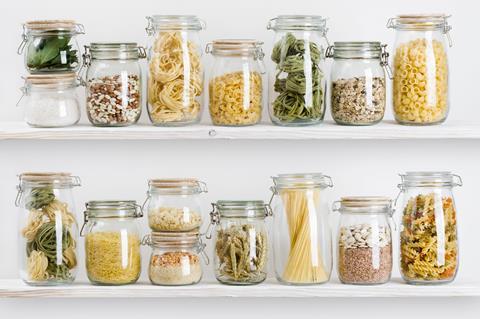
Dry pasta has seen the greatest average price jump of any food in Top Products 2022. But that 14.1% rise clearly isn’t putting off shoppers – pasta has held onto its volumes more successfully than any other starchy carbohydrate.
Units are down just 1.7% on value up 12.1% to £271.4m. Rice, noodles and even fresh potatoes (see p111), meanwhile, have suffered far heftier volume declines, and none have mustered any value growth. A key reason for pasta’s relatively strong sales is the fact that – even after the hefty price hike – it’s still cheaper than home-made chips.
Particularly private label. “The overwhelming position of own label – worth £177.9m versus brands’ £93.5m – and the increasing cost of production have driven most category dynamics,” says NielsenIQ senior insights analyst Adam Paulson.
Brands have struggled, and Napolina – down 16.3% in value on volumes down 24% – has suffered most in the top 10, he adds. “Some consumers have perhaps switched to own label.”
It’s easy to see why. Half a kilo of Napolina Whole Wheat Spaghetti is currently selling for £1.50 at Tesco, versus just 28p for the same size pack of spaghetti from the retailer’s value own brand, Hearty Food Co.
Nevertheless, Princes Group brand marketing director Jeremy Gibson insists Napolina still has a crucial role to play. “Despite a focus by retailers on own label tiers, it has become even more important to utilise lead brands to drive value and offer both quality and differentiation across the range,” he told The Grocer last month.
Napolina had a brand awareness score of 74% – a figure Princes was looking to build on with the launch of a £2m push in November, he added. “Napolina continues to invest in advertising. The new campaign features a new brand positioning and bolder tone of voice to engage with consumers and attract them to the brand.”
Napolina’s not the household name on a downward trajectory. Marshalls and instant pasta brand Mug Shot have also registered double-digit value declines.
Even new number one Batchelors Pasta ‘n’ Sauce is struggling more than its value suggests. Its £482.7k gain, pasta’s third-greatest absolute growth of the year, masks a 9.7% slump in volumes.
Things are more positive for the two fastest growers: Corticella and Ragu. They’re up 952.4% and 3,042.4% respectively thanks to a combination of distribution gains and higher prices. Their affordability – despite those price hikes – has played to their favour. Both brands have entered Iceland in the past year, with Corticella selling a 5kg pack for £6 and Ragu fetching £4.25 for a 3kg pack.
But even keenly priced branded lines like those will probably have their work cut out in the year ahead. The deepening economic crisis is expected to fuel further gains for own label, as the supermarkets seek to manage profitability and keep prices low. NielsenIQ’s assessment currently gives own label a 66% share of the market – and that’s not even taking the discounters into account.
As in pasta, price has been crucial in rice and noodles over the past year. In the latter market, none of the top five brands managed to grow volumes, meaning all value gains are wholly price-driven. Take fastest grower Blue Dragon. Its 8% boost to value hides a 1.1% decline in volumes.
Similar dynamics are at play in the rice aisle, where market leader Ben’s Original has lost 8.1% of its value and 12.4% of volumes.
Which makes it all more significant that number two brand Tilda has achieved 7.4% value growth on volumes up 7.7%.
Ben’s versus Tilda
Tilda’s fall in average price is conspicuous in a market defined by near-universal inflation. That will have played a major part in stealing share from Ben’s Original, says NielsenIQ’s Paulson. “Ben’s average price has increased 4.9%, while Tilda’s has dropped 2.2%. There is now something of a price wedge between the two leaders, with Ben’s commanding an 8.4% higher price per kilo.”
That difference appears to be narrowing. A 250g ready-to-heat pouch of Tilda Basmati currently sells for 95p in Tesco, while comparable products from Ben’s Original fetch 99p. In Sainsbury’s, 250g pouches from both brands were £1 as The Grocer went to press.
The stand-off between Tilda and Ben’s could soon become a three-way fight, given Veetee’s ongoing gains. It has gone from being the sector’s sixth-biggest brand to number four in the past year, with value sales of its microwavable pots and trays surging 40.2% on volumes up 7%.
But a lack of dry rice lines could put Veetee at a disadvantage in 2023. As Pakistan’s floods in August and the imposition of trade restrictions by India pile further pressure on prices, some predict supermarket sales of dry rice will grow.
“Switching to dry from microwaveable or pouch rice is easy,” says Harry Dulai, MD of Laila Rice distributor Surya Foods. “You get the same end result – but dry rice is much cheaper per serving.”
And cheaper servings will certainly be in huge demand over the coming year.
Top Launch 2022
Durum Wheat Pasta | Crosta & Mollica
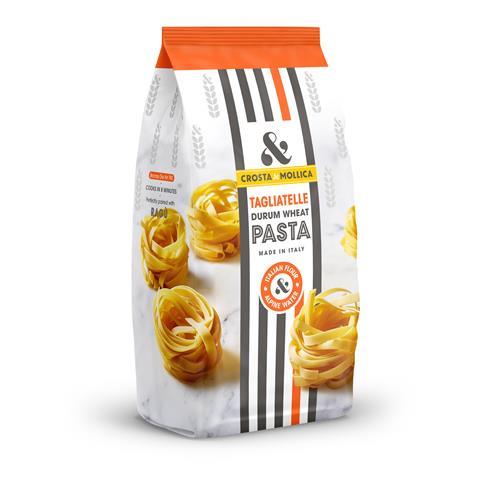
This classy, four-strong range of premium dried pasta hit Waitrose shelves in August. Spaghetti, Rigatoni, Fiorelli and Tagliatelle are made using the “brightest golden durum wheat Italy has to offer” says Crosta & Mollica. The quartet was joined on shelf in the summer by a lineup of posh pasta sauce: Sugo al Pomodoro, Sugo alla Puttanesca, Sugo alla Norma, and Sugo all’Arrabbiata. All are billed as containing naturally sun-sweetened Italian tomatoes “picked at peak ripeness”.
The Grocer Top Products Survey 2022: How can brands stay in focus?
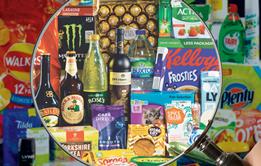
Commodity price hikes, the war in Ukraine and inflation have changed the way Brits shop in the past year, while also piling pressure on suppliers and retailers. Which brands and categories have negotiated the system shock best?
- 1
- 2
- 3
- 4
- 5
- 6
- 7
- 8
- 9
- 10
- 11
- 12
- 13
- 14
- 15
- 16
- 17
- 18
- 19
- 20
- 21
- 22
- 23
- 24
- 25
- 26
- 27
- 28
- 29
- 30
- 31
- 32
- 33
- 34
- 35
- 36
- 37
- 38
- 39
- 40
 Currently
reading
Currently
reading
Rice, noodles & pasta 2022: Pasta stays firm despite price hikes
- 42
- 43
- 44
- 45
- 46























![Cheese ]GettyImages-664658023](https://www.thegrocer.co.uk/Pictures/80x50/1/8/6/282186_cheesegettyimages664658023_540979.jpg)













































![Cheese ]GettyImages-664658023](https://dmrqkbkq8el9i.cloudfront.net/Pictures/80x50/1/8/6/282186_cheesegettyimages664658023_540979.jpg)




























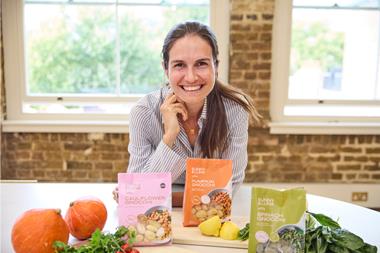
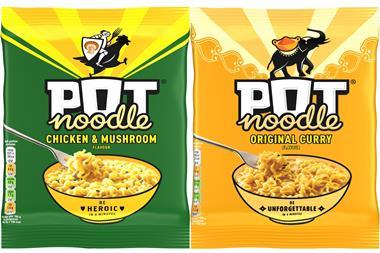
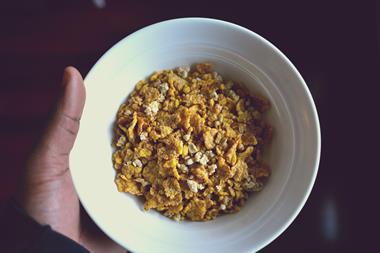
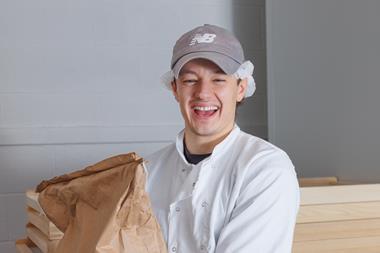
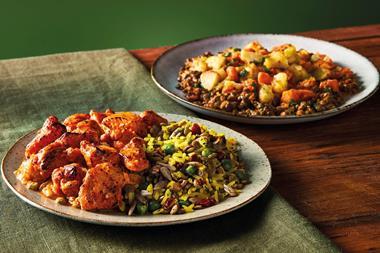







No comments yet